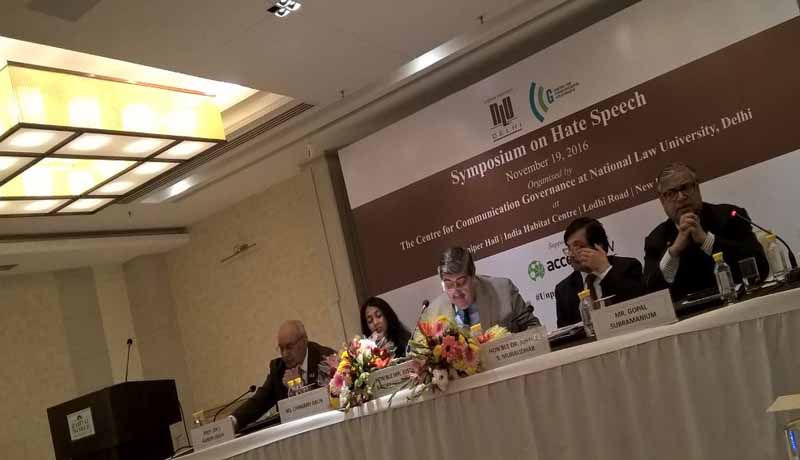Did Supreme Court Miss An Opportunity To Contain Hate Speech?
LiveLaw Research Team
20 Nov 2016 12:16 PM IST

Next Story
20 Nov 2016 12:16 PM IST
At a symposium on hate speech held this evening in New Delhi, under the auspices of the Centre for Communication Governance at National Law University, Delhi, sharp differences among two key speakers came to the fore, on whether the Supreme Court missed an opportunity to issue suitable directions to contain hate speech in Pravasi Bhalai Sangathan v Union of India, delivered by a three-Judge...
